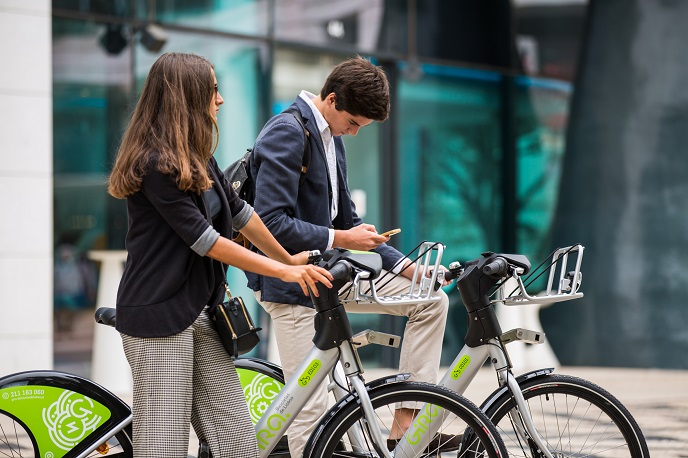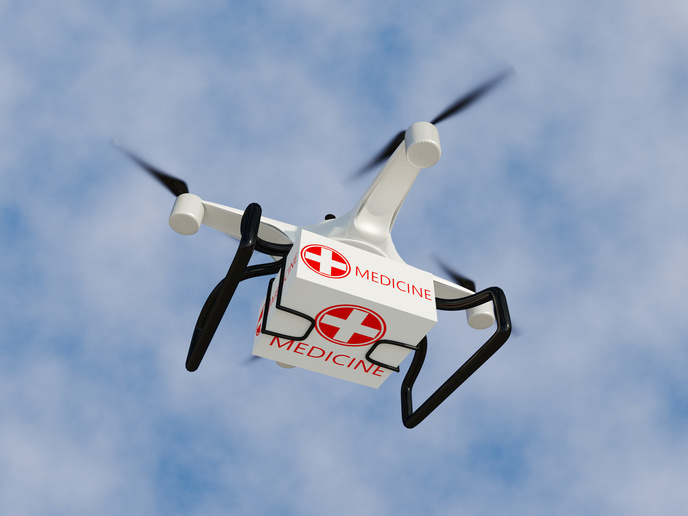Making people-centred smart cities a reality: the power of sharing data
Today, approximately 75 % of Europeans live in urban areas, a rate that is forecasted to increase in the future. With rapid urbanisation come several issues, including pollution, health concerns, environmental degradation. Finding solutions to these problems is pivotal to helping Europe shift to a green, smart and sustainable future and to achieving the EU’s ambition of climate neutrality by 2050. Helping cities address some of the most pressing urban challenges today, the EU-funded Sharing Cities project is empowering cities to explore and exploit the potential of smart technologies to improve city services, support innovative new business models and deliver a better quality of life for all. “Since 2016, London, Lisbon, Milan, Bordeaux, Burgas and Warsaw, collaborated to develop workable business models for smart technologies that can be scaled up and replicated across other European cities. In doing so, they have supported the growth of a new green smart infrastructure market,” explains Jem McKenna- Percy, the partnership’s lead.
Viable smart solutions
“Ten technologies were tested by the cities based around common needs, placing people at the centre of technological solutions,” outlines McKenna- Percy. Known as the lighthouse cities, London, Lisbon and Milan, have implemented replicable urban digital solutions and collaborative models. One such solution is the Urban Sharing Platform (USP). Integrating a range of data from sources like smart lampposts and e-mobility sharing services, it collects and processes raw data to produce ‘smart data’. This data can provide cities with invaluable insights to improve decision-making and deliver improved services. For instance, the Digital Social Market (DSM) in Lisbon – a mobile app – collects data around energy usage and provides users with information relevant to them. “The aim is to shift perceptions and change and promote sustainable behaviours,” adds McKenna-Percy. Another technological solution tested on the project was smart lampposts. In addition to providing light, they also include applications such as WiFi, parking sensors, video cameras and electric vehicle charging. In Milan, some lampposts have been equipped with environmental devices to help monitor flows of information such as noise level, air quality and traffic levels. “The information gathered will help to improve the lives of citizens,” highlights Jem McKenna-Percy. Sustainable Energy Management Systems (SEMS) were also tested. A SEMS is a modular system that collects information from various local energy systems and devices, and can, for example, help provide information about energy demand from a heating system. In London, the SEMS performs predictive forecasting and energy balancing for new energy assets. From the data collected, the system can optimise performance based desirable outcomes like operating costs and highest air quality. Other key results can be found on each city profile on the project’s website.
Sustainable cities for all
“All six cities have demonstrated the benefits that using smart technologies, sharing data and working together can have on carbon reductions, service delivery and well-being,” highlights McKenna-Percy. The process of moving from pilot to scale-up has been captured and published in a series of six playbooks available for other European cities to adopt. “We will continue to take significant steps to engage with other peer cities, so that many more communities across Europe and beyond can experience the benefits that smart technology brings to city life,” concludes McKenna-Percy. Although the project has come to an end, participating cities continue to scale up some of the tested solutions.
Keywords
Sharing Cities, e-bike, smart technologies, well-being, lighthouse cities, sustainability, urban challenges, cycling infrastructure, carbon reductions







